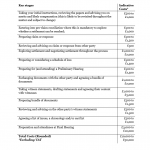Wrongful Dismissal – Are You a Victim?
Wrongful Dismissal
The most common claim for wrongful dismissal relates to the employer’s failure to comply with their employment notice period specified in the Employment Act. Notice periods are determined by either of these: statutory notice period: based on your continuous employment with the company; the minimum is twenty-one days for employment less than two years; the maximum is three years. The next point to consider in making a claim for wrongful dismissal relates to the nature of the work done: were you employed as an employee or were you engaged as an independent contractor? If you were an employee, you will need a statutory notice period of one year from the date of dismissal; if you were an independent contractor, this period is twenty-one days from the date of dismissal. Additionally, in order to establish a claim for wrongful dismissal you must establish that the employer failed to make reasonable steps to prevent your departure.
If you have been working with the same employer for over two years there may be an unfair dismissal claim. In such a case, you will need to exhaust all possible avenues of attack against the employer with regard to breach of notice periods, breach of agreement and other potential breaches of your employment rights. In such a situation, you may wish to seek advice from an employment solicitor who specialises in this area of law. If, however, you believe that there has been a personal grievance against the employer relating to the matter of notice periods, you will have to decide if you wish to pursue proceedings through the courts or whether you would prefer to try mediation first.

Commonly, a claim for wrongful dismissal can be brought when the employee has been working for the company for over two years without notice. The Employment Rights Act regulates the conditions of employment and sets out the circumstances in which an employee can apply for a dismissal. It is important that you read the employment contract very carefully and consult with legal experts before making any application for a claim. Some employment contracts contain express provisions limiting the amount of notice an employee can seek and many more will provide for an application to be treated as being ‘for or on behalf of’ an employer for the purpose of claiming unfair dismissal. The employee must therefore show that, under the terms of his or her contract of employment, there was a notice or agreement to which he or she was adversely affected in some way.
Wrongful Dismissal – Are You a Victim?
There are three main scenarios which are often cited as grounds for making a claim for wrongful dismissal. The first scenario relates to a breach of the implied term of the contract of employment – the length of notice required. If there was no agreement as to the length of notice, there would have been no need for you to apply for a further extension of notice. Similarly, where the employee is employed by the company for less than two years there would have been no need to apply for a further extension of notice and so no breach of the contract could have occurred.
The second scenario relates to claims of unfair and constructive dismissal. If you feel that you have been unfairly dismissed, it is important that you speak to an employment tribunal as soon as possible. It may well be the case that the employer has merely considered that your position is not suitable and so have dismissed you without any basis in fact or in law. However, if the reason given by the employer is based on grounds such as misconduct then you will have a chance of successfully applying for unfair dismissal at court. Again, speaking to an employment tribunal will be the best way to get the correct advice and get a fair hearing.
Finally, civil claims can also make substantial award. These awards are awarded by the civil courts and not by the employment tribunals. This means that you stand a good chance of winning your claims in the civil courts and often make substantial increases to your claim for damages. Again, speaking to a qualified attorney who is familiar with civil court claims can help you obtain the advice that is in your best interests when making a claim for wrongful dismissal or any other kind of claim for unfair dismissal.